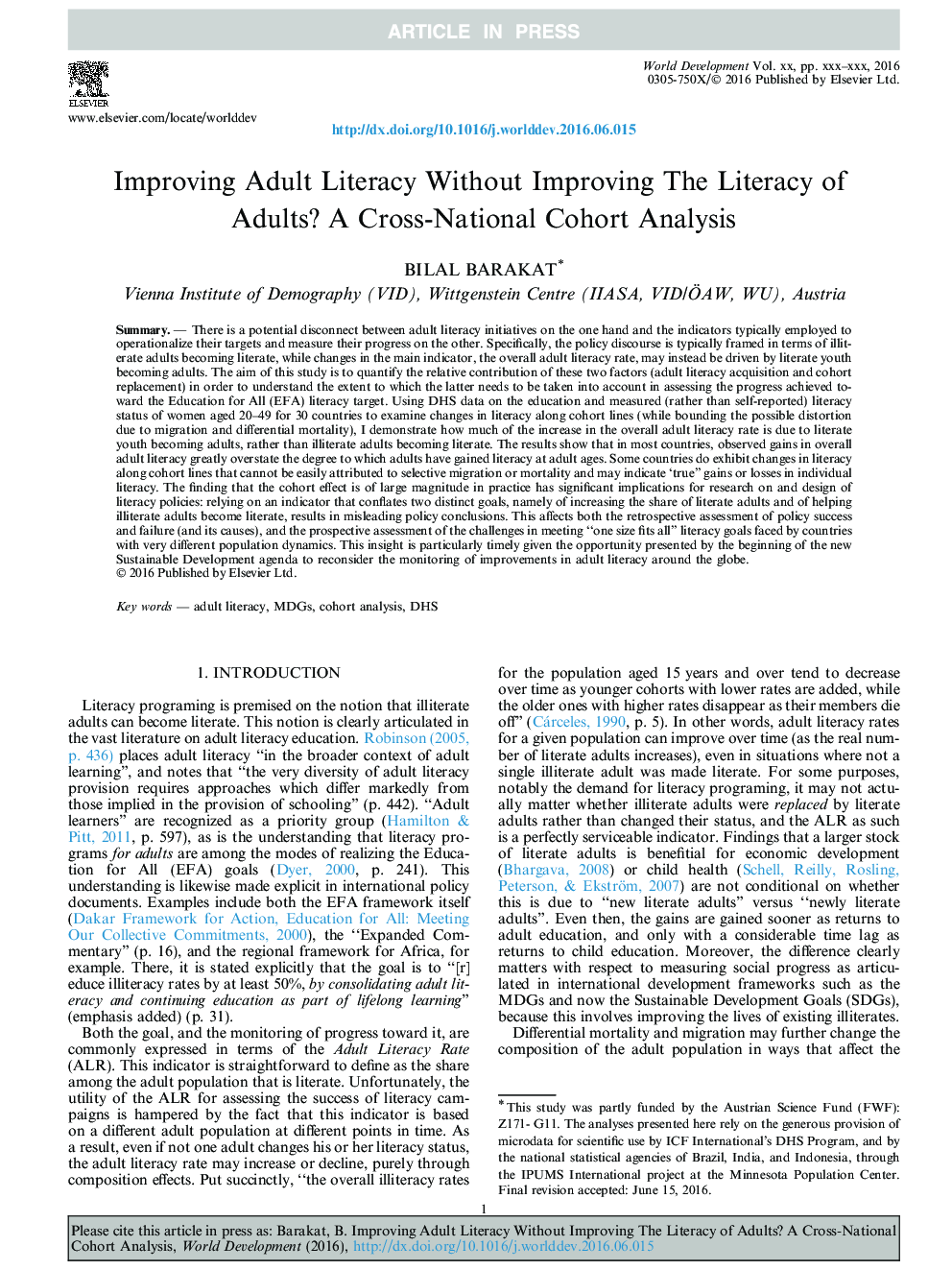| کد مقاله | کد نشریه | سال انتشار | مقاله انگلیسی | نسخه تمام متن |
|---|---|---|---|---|
| 7392489 | 1481131 | 2016 | 16 صفحه PDF | دانلود رایگان |
عنوان انگلیسی مقاله ISI
Improving Adult Literacy Without Improving The Literacy of Adults? A Cross-National Cohort Analysis
ترجمه فارسی عنوان
بهبود سواد بزرگسالان بدون بهبود سواد بزرگسالان؟ تجزیه و تحلیل هماهنگ بین ملی
دانلود مقاله + سفارش ترجمه
دانلود مقاله ISI انگلیسی
رایگان برای ایرانیان
کلمات کلیدی
موضوعات مرتبط
علوم انسانی و اجتماعی
اقتصاد، اقتصادسنجی و امور مالی
اقتصاد و اقتصادسنجی
چکیده انگلیسی
There is a potential disconnect between adult literacy initiatives on the one hand and the indicators typically employed to operationalize their targets and measure their progress on the other. Specifically, the policy discourse is typically framed in terms of illiterate adults becoming literate, while changes in the main indicator, the overall adult literacy rate, may instead be driven by literate youth becoming adults. The aim of this study is to quantify the relative contribution of these two factors (adult literacy acquisition and cohort replacement) in order to understand the extent to which the latter needs to be taken into account in assessing the progress achieved toward the Education for All (EFA) literacy target. Using DHS data on the education and measured (rather than self-reported) literacy status of women aged 20-49 for 30 countries to examine changes in literacy along cohort lines (while bounding the possible distortion due to migration and differential mortality), I demonstrate how much of the increase in the overall adult literacy rate is due to literate youth becoming adults, rather than illiterate adults becoming literate. The results show that in most countries, observed gains in overall adult literacy greatly overstate the degree to which adults have gained literacy at adult ages. Some countries do exhibit changes in literacy along cohort lines that cannot be easily attributed to selective migration or mortality and may indicate 'true” gains or losses in individual literacy. The finding that the cohort effect is of large magnitude in practice has significant implications for research on and design of literacy policies: relying on an indicator that conflates two distinct goals, namely of increasing the share of literate adults and of helping illiterate adults become literate, results in misleading policy conclusions. This affects both the retrospective assessment of policy success and failure (and its causes), and the prospective assessment of the challenges in meeting “one size fits all” literacy goals faced by countries with very different population dynamics. This insight is particularly timely given the opportunity presented by the beginning of the new Sustainable Development agenda to reconsider the monitoring of improvements in adult literacy around the globe.
ناشر
Database: Elsevier - ScienceDirect (ساینس دایرکت)
Journal: World Development - Volume 87, November 2016, Pages 242-257
Journal: World Development - Volume 87, November 2016, Pages 242-257
نویسندگان
Bilal Barakat,
